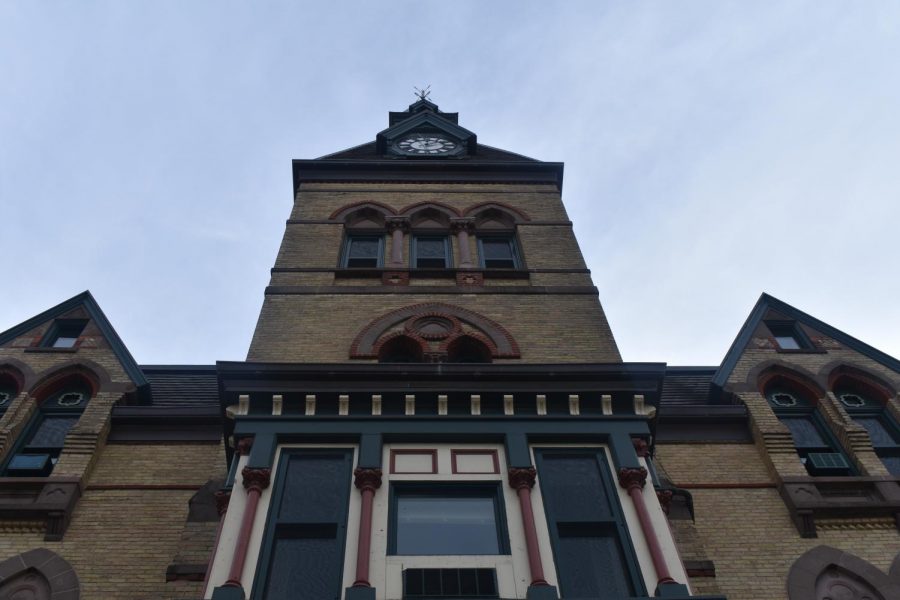HUSC fall elections raised questions and conflict
HUSC experiences internal discord as a result of election controversy.
November 13, 2019
The Hamline Undergraduate Student Congress (HUSC) experienced a rough start to the fall semester when a flawed election ballot was distributed to students on Tuesday, Sept. 17.
The Google form used for the ballot did not collect the email addresses of voters, rendering it impossible to verify voter identity and allowing individuals to vote more than once. Moreover, the ballot did not allow first-year voters to choose a candidate for each of the three open representative positions.
The ballot was quickly corrected; however, this flaw resulted in around 150 votes to be thrown out. Last year, only 502 students voted in the fall elections.
HUSC president Andrew Weston made the decision not to redo the election and later addressed the issue at a HUSC general assembly meeting on Oct. 15.
“It was about individual votes and not the process as a whole,” Weston said. “I felt that if we redid elections, less students would vote and less students would have their voices heard.”
It was instead decided that a campus-wide email would be sent out with instructions on how students could re-vote if they thought their initial entry was thrown out.
Political Affairs Committee (PAC) chair Madison Gaffney took responsibility for the ballot’s problems.
“I want to apologize for the situations that occurred,” Gaffney said during a HUSC executive board meeting, which became an open discussion forum to allow HUSC members and students to ask questions about the election process. “For the spring elections, you can be assured it will be the most tightly run ship that you will ever see.”
Weston and Dieu Do, the HUSC vice president, declined to comment further on this story.
Do stated that “the elections have taken place a long time ago and I don’t think it’s relevant anymore for campus.”
Liam Davis Temple, the former president of HUSC and current senior representative, was responsible for running the spring 2019 elections as president when the then PAC chair recused himself.
“In HUSC, the work you do for your executive board position is supposed to be done in your specific HUSC Google drive,” Davis Temple said. “This is so that each year whoever is hired for that certain position is able to look back and reference previous year’s work.”
This issue opened up further debate within HUSC. At the Oct. 15 general assembly, former HUSC Public Relations chair Evelyn Humphrey criticized Weston’s lack of transparency as HUSC president and claimed that holding invite-only executive board meetings violated HUSC bylaws.
Humphrey also asserted that HUSC bylaws were violated during the election when students were not able to vote for each open position and people other than the PAC chair and HUSC advisor were present to count votes.
HUSC advisor Patrick Haught cited the vagueness of the bylaws as the main cause of this debate.
“It is a hole in the bylaws,” Haught said of whether or not students should be able to have multiple votes when multiple seats are open. “What we decided is that in the future, we don’t want it to be open to interpretation. We want the bylaws to clearly state how [the ballot] should be built.”
Haught emphasized the executive board’s dedication to solving this problem.
“They don’t take any of this lightly, and they’re working already now in November on rewriting bylaws,” Haught said.



